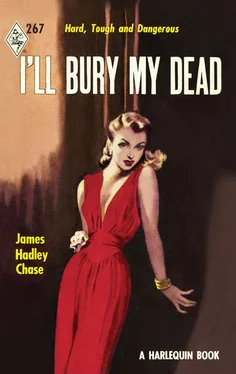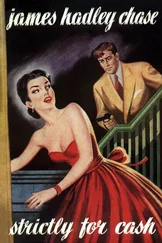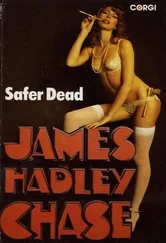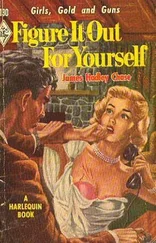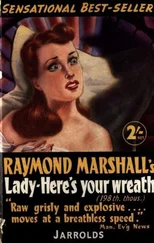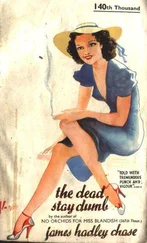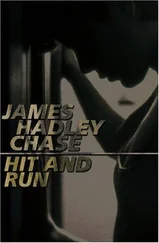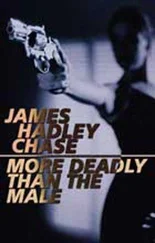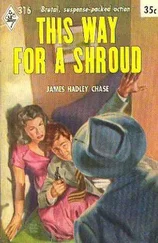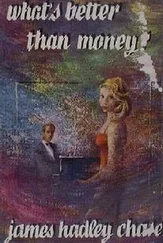“Name it after you?” Julie repeated blankly. “But why, for goodness’ sake?”
English grinned a little sheepishly.
“Sounds crazy, doesn’t it? But I want it, Julie. I want it more than anything I’ve ever wanted.” He got up and began to pace up and down. “I’ve made a fair success of my life, Julie. I started from scratch, and now I’m as good as the next man as regards to money, but money isn’t everything. If I drop dead this moment, Julie, no one would remember me in a week’s time. It’s the name people leave after them that counts. If the hospital was named after me—well, I guess I wouldn’t be forgotten quite so easily. And then there’s another thing, more important. I promised my mother I’d make a name for myself, and she believed me. She didn’t live long enough to know I had started on the way up. When she died I was still fooling around with that compass and getting nowhere, but I told her it was going to be a success, and I told her I was going way ahead, and she believed me. She would have got a big bang out of knowing the hospital is going to be named after me, and I’m soft in the head enough to think she’ll still get a big bang out of it.”
Julie listened in a hypnotized silence. She had never had any idea that English could think and talk like this. She wanted to laugh, but instinctively she knew he would be furious with her if she did. To want a hospital to be named after him! All this sentiment about his mother! It was unbelievable and completely out of character. She thought, not without alarm, that she didn’t know him as she had thought she did. She had always regarded him as a completely ruthless business man whose god was money. This new side of him startled her.
“Go ahead and laugh if you want to,” English said, smiling at her. “I know it’s funny. I laugh myself sometimes, but that’s what I want, and that’s what I’m going to have. The English Memorial Hospital! Sounds pretty good, doesn’t it?”
Julie put her hand on his arm.
“If that’s what you want, Nick, I want it, too.”
“I guess that’s right,” he said, suddenly thoughtful. “But this business of Roy’s may slap a lid on it.”
“But why?”
“Believe it or not, Julie, it took me a hell of a time to persuade the commission to let me finance the hospital. You wouldn’t believe that, would you?”
“What commission?”
“The City Planning Commission,” he said patiently. “It’s unbelievable what a bunch of stuffed shirts they are. All from the best families, of course, but not one of them has ever earned a dime. They’ve inherited what money they have, and they’re damned miserly with it, too. Although I bet their private lives wouldn’t stand investigation, on the surface they are about the finest collection of plaster saints you’ve ever set eyes on. They didn’t approve of me. Two of them even said I was a gangster. The senator had to talk pretty sharply to them to get them to accept my money. At the time, nothing was mentioned that the hospital was to be named after me. If it turns out that Roy was in bad trouble, that he did blackmail his clients, the chances of my name being used is as remote as the snows of Everest. Morilli knows that. The police commissioner knows it, too. They’ll expect to be taken care of if this is to be hushed up. But Corrine’s the difficulty. She may try to cut off her nose to spite my face. If she lets on that I wouldn’t finance Roy, and Roy was forced to raise money by blackmail, I shall be ruled out. A scandal like that will make the commission give birth to pups.” He tossed the cigar into the fire and went on in a suddenly harsh voice, “Why couldn’t the louse have shot himself next month when this was in the bag?”
Julie stood up.
“Let’s go to bed, Nick,” she said, and slipped her arm through his. “Don’t let’s think any more about it tonight.”
He gave her bottom an affectionate little pat.
“You’re full of good ideas, Julie,” he said. “We’ll go to bed.”
VI
At the back of a modest walk-up apartment house on 45th East Place, a small, shrub-infested garden ran down to an alley hedged in on either side by a six-foot brick wall.
During the summer months this alley was popular among courting couples as it had no lights and was shunned by pedestrians during the hours of darkness.
For the past two hours, a man had been waiting in the alley, his eyes fixed on a lighted window on the third floor of the apartment house.
He was a man of middle height, with broad and powerful shoulders. He wore a wide-brimmed brown slouch hat pulled down over his eyes, and in the dim light of the moon, only his thin-lipped mouth and square-shaped chin could be seen. The rest of his face was hidden by the black shadow cast by the hat brim.
He was expensively dressed. His brown lounge suit, his white silk shirt and polka-dotted bow tie gave him the appearance of a well-to-do dandy, and once when he lifted his arm to consult a gold-strap watch, he showed two inches of white shirt cuffs and the tail of a white silk handkerchief he wore tucked up his sleeve.
While he waited in the alley, he remained motionless. He chewed a strip of gum, his jaws moving rhythmically and continuously. His two-hour vigil was conducted with the patience of a cat waiting for a mouse to appear.
A few minutes after midnight, the light in the third-floor window suddenly went out and completed the darkness of the rest of the apartment house.
The man in the brown suit remained motionless. He leaned his broad shoulders against the brick wall, his hands thrust into his trousers’ pockets while he waited a further half-hour. Then, after consulting his watch, he reached down into the darkness and picked up a coil of thin cord that lay near his feet. A heavy rubber-covered hook was fastened to one end of the cord.
He swung himself over the wall and walked silently and rapidly up the cinder path that led through the uncared-for garden to the back of the apartment house.
In the light of the moon, the iron staircase of the outside fire escape showed up sharply against the white stucco of the building.
The man in the brown suit paused under the swing-up end of the escape that was some five feet above his outstretched hand. He uncoiled the cord and tossed the hook into the air. The hook caught in the iron work of the escape and held. He gently tightened his grip on the cord, then pulled. The end of the escape came down slowly and silently, and bumped to the ground.
He released the hook, recoiled the cord and left it on the bottom step where he could pick it up quickly on his way down.
He went up the escape, two steps at a time, without hesitation or without looking back to see if anyone happened to be watching him. He reached the third-floor window he had been watching for the past two hours, and saw with satisfaction that the window was open a few inches at the top and bottom. He noticed also the curtains across the windows were drawn. He knelt down by the window, his ear to the gap between the window frame and the sill and listened. He remained like that for several minutes, then he put his fingers under the window frame and gently exerted pressure. The window moved up inch by inch, making no sound.
When it was fully opened, he glanced over his shoulder and looked down into the dark garden and the darker alley. Nothing moved down there, and except for his own well-regulated breathing, he could hear no sound.
The curtains hung well clear of the window, and he slid into the room without disturbing them. Cautiously, he turned and began to close the window, again moving it inch by inch, and again in silence. When the window was as he had found it, he straightened, turned and parted the curtains a few inches. He looked into darkness. The oversweet smell of face powder, stale perfume and cosmetics told him he had made no mistake as to the room. He listened, and after a moment or so, he heard quick light breathing not far from where he stood.
Читать дальше
